#nduli
Text
my favourite nduli images :)
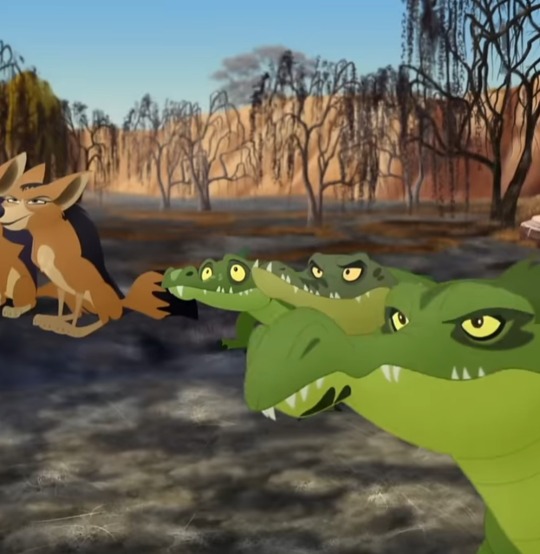
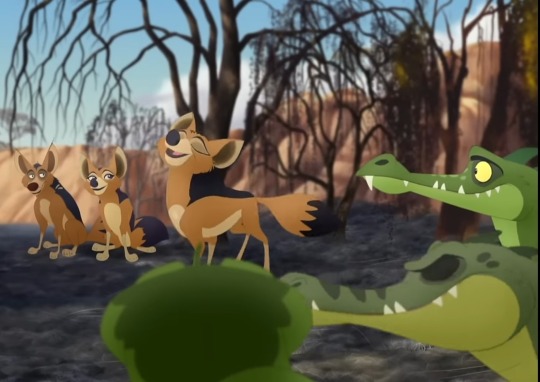
i love how at first he's like "Huh?" and then when reirei starts singing he's invested in this stupid competition 😭
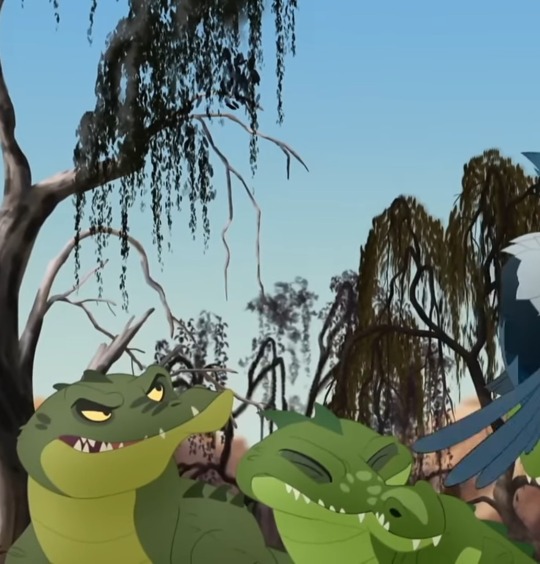
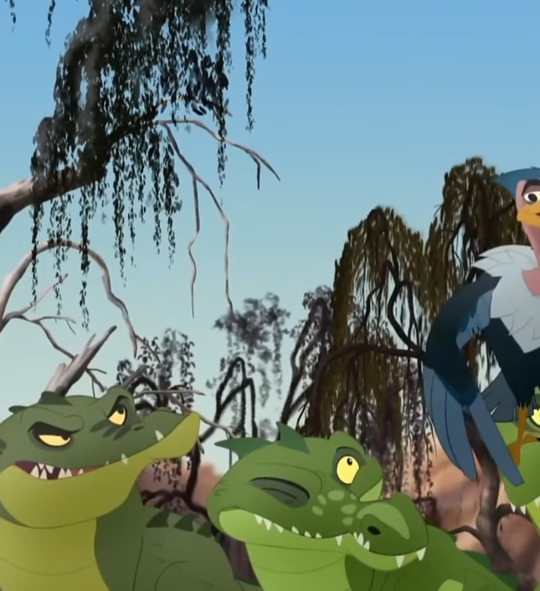
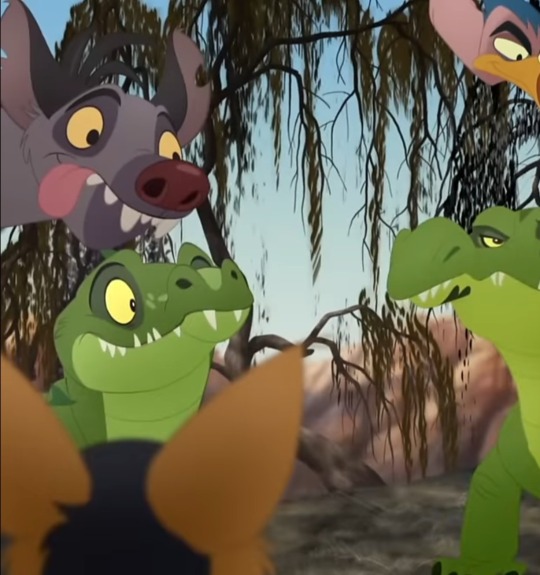
the way he squeezes his eyes shut bracing for mzingo to land of his snout and then opens one eye- GOD i love the attention to detail in this show! also, him and his future bestie excited for kiburi's singing :3 (they're let down. goddamnit kiburi /lh)
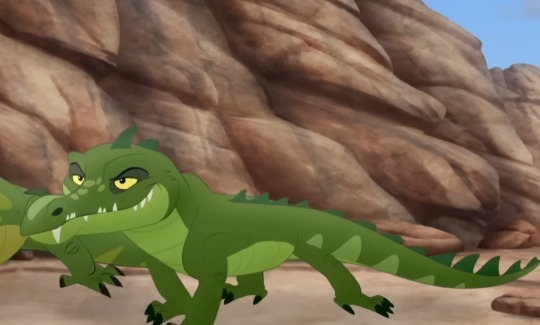

devious moments
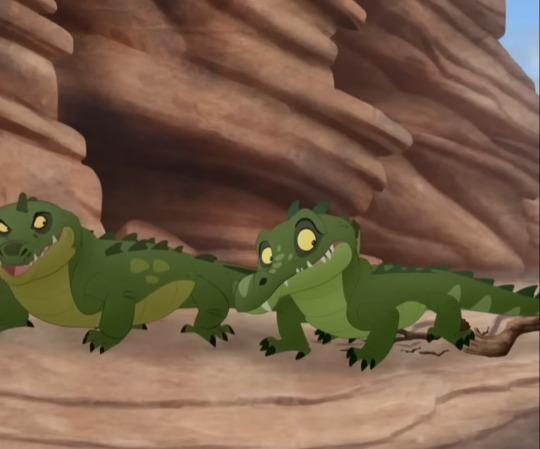
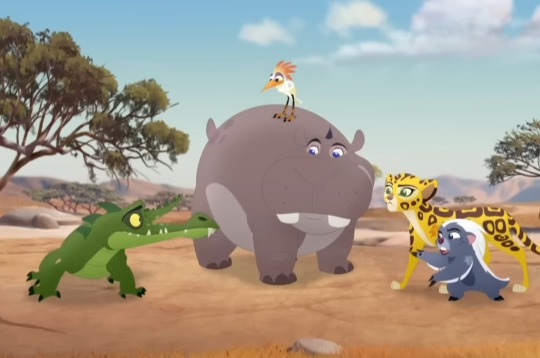
the transition from "Ooh, I fucked up" to "Ooh, we fucked up" 💀 the lion guard are so confused HFGHDH AND BESHTE'S LIL SMILE
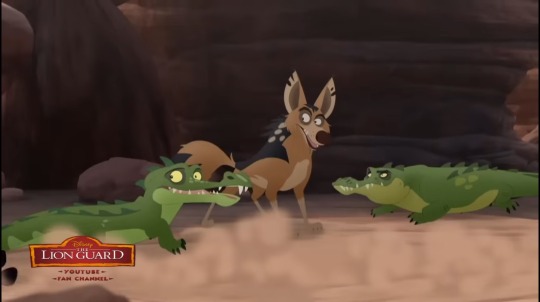
live reaction: when you see your bestie get absolutely LAUNCHED
kept in goigoi and tamka cuz this screenshot is so funny 😭😭
#i don't feel so well rn but nduli always makes me feel better#him and the idiots give me a lil giggle 😭#comfiest of comfort characters#anyway here's our favourite silly guy#enjoy <3#the lion guard#tlg#tlg outlanders#tlg crocs#nduli
96 notes
·
View notes
Text

He knows all your moves 😎
#OKAY SO THE LIGHTING ISN’T THAT GREAT BUT LOOK AT HIMMMMM#HE’S SO CONFIDENT#you go king#i love how he’s stronger than tamka despite his size#he gets it from kiburi and tamka i’m telling you#nduli#the lion guard
55 notes
·
View notes
Text
Round 1 Side B

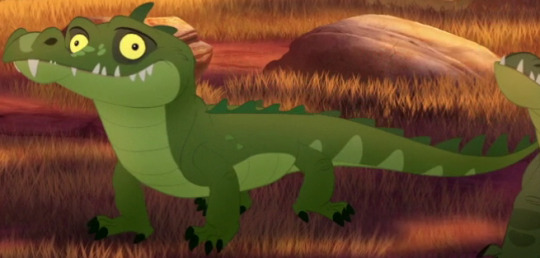
9 notes
·
View notes
Text



Debating on redoing my Nduli icons like this to accommodate for his long body and snout, which doesn't fit in a 100x100 base as well
6 notes
·
View notes
Text

He will still be on the multi until I am entirely finished with this blog but.
Tag dump.
#tag dump#;Spots and mischief (ic)#;Dinner! And it's being delivered (asks)#;Food for thought (headcanons)#;It's lunchtime! (queue)#;Tonight we strike! (memes)#;Prepare to face my flower power! (crack)#;Repressed in the mind (musings)#;For one so small you seem so strong ; my paws will hold you keep you safe and warm (Ed & Cheezi)#;When you‘re big you can push all the little ones around ; you can bonk someone smaller on the head (Banzai & Cheezi)#;I've got your back ; and I got yours (Nduli & Cheezi)#;Unlikely Friendship (Makini & Cheezi)#;Before we met scary stuff was actually...pretty scary. (Janja & Cheezi)#;Goof off pals (Chungu & Cheezi)
2 notes
·
View notes
Text

He’s either the biggest goofy sweetheart or he is a sassy little jerk that kills for fun there is no in between
#ooc#;spotted mischief (cheezi)#and the sweet part is only for dad / uncle / his old babysitter / Janja / Chungu#and the old Makini / Nduli friendship that I still lowkey keep but with only one person#if you are friend or family#he just wants to see you laugh#in a good way
2 notes
·
View notes
Photo
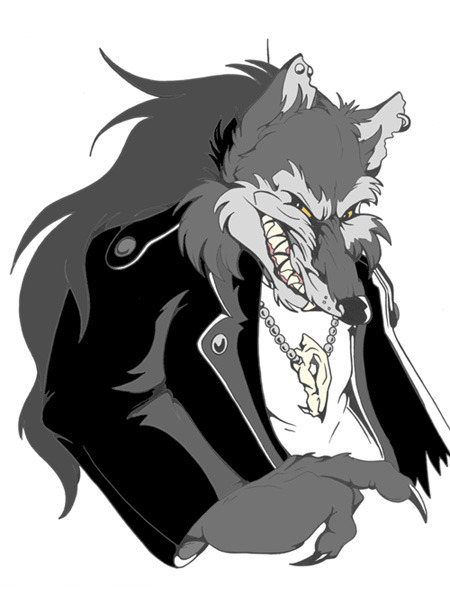
By Margaret Petrie (Nduli) - 2002
Yerf.org description: Silk screen design done for my own amusement. The screen is in black and white with lettering, this was just a quick and dirty Photoshop color job.
(source)
#furry#anthro#vintage#classic#oldweb#oldnet#old#net#web#furrycore#netcore#2000s internet#90s internet#art#history#aesthetic#wolf#grey#Margaret Petrie (Nduli)#2002#bw
67 notes
·
View notes
Text
350 Followers Special!
{masterlist}
To celebrate all 350 of you I will be posting 26 fics/drabbles! Starting with:
A: Ahsoka x reader (Rebels or after) (The Pain Began to Dim)
B: Boba Fett x reader (I Know...)
C: Commander Cody x reader (Cabaret)
D: Din Djarin x reader (You Will be Okay)
E: Echo x reader (A New Chapter)
F: Fives x reader (In the Quiet Part 2)
G: Commander Gree x reader
H: Hardcase x reader
I: Grand Inquisitor x reader
J: Jesse x reader
K: Kallus x reader
L: Luke Skywalker x reader
M: Maul x reader
N: random :)
O: Obi Wan Kenobi x reader
P: Plo Koon x reader
Q: Quinlan Vos x reader
R: Captain Rex x reader
S: Savage Opress x reader
T: Thrawn x reader (The Star-Crossed Lovers of Atollon)
U: Luminara Unduli x reader
V: Eli Vanto x reader
W: Wolffe x reader
X: random :)
Y: random :)
Z: Ziara x reader
Thank all of you so much for putting up with my dumbassery. I adore each and everyone of you. I know I haven’t been writing lately and the long and short of it is I fell into a slump that I’m still fighting with but know that I love all of you and you are the reason I have any motivation to write at all.
26 notes
·
View notes
Text
A clip from the 2019 annual reed dance at Ludzidzini Royal Residence. Eswatini. ©Mluleki Nduli
224 notes
·
View notes
Photo

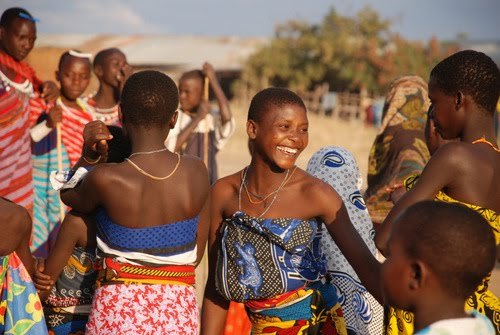
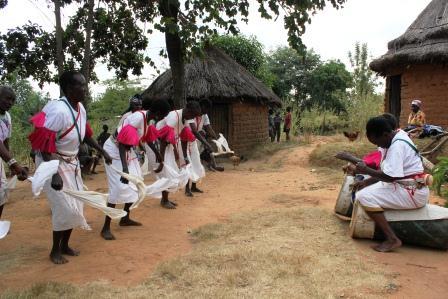
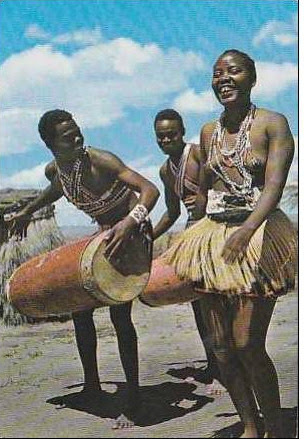

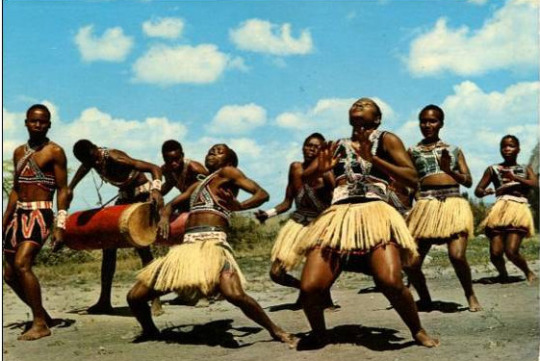
Nduli: The most popular dance among Kamba teenagers. It is a condition that any boy attending an Nduli session must be circumcised, for it is in the Nduli dance that one may choose a partner for life.
Kisanga: This is a thanks-giving dance for all ages, both young and old. It is performed only when the village has had a good harvest. During the celebration a white goat is slaughtered, its blood poured under the Kitutu Tree, and its meat left near the tree for Mulungu (God).
Mwasa: The Mwasa dance involved two drums, one small and one large, and was found in northern Kitui. While not primarily used for dancing, Mwasa served as an accompaniment while elders enjoyed uki beer. Mwasa is a relatively new drum beat, which comes from a combination of Nzumari from the Giriama (one of the 'Nine Tribes' of the Mijikenda) and original Kamba Ngoma. It came into existence during the Second World War, when Giriama and Kamba soldiers served together in the colonial army.
Kamba Mwasa dance
Songs
The Kamba have many kinds of songs; and each type has a name. The songs included: mbathi sya kivalo; myali (general social commentary and scathing attacks [nzeo] against miscreants); lullabies; and songs for circumcisions, marriages, work, and hunts (uthiani). Circumcision songs had many names: ngakali (or kakali) and undiu. Unmarried girls sang maio ("mourning" songs) at a newly married girl's home to "mourn" losing their colleague. While thatching, threshing or digging, people commonly worked to the rhythms of songs.
Mbathi sya kivalo were wathi songs accompanied by dance and, often, instrumental music. These songs differed according to the dance steps and drums used. Songs accompanied by instruments included kyaa, ngutha, mbalya, kuli, mbeni, kilumi and ngulukulu. Unaccompanied songs included nzai, kithakyo, musya, kilamu, mukungo, kilui, kileve, mawese and mbalu.
Myali (singular mwali) were sung at wathis - big ceremonies with singing, dancing, and socializing. Myali were neither accompanied by musical instruments nor danced to in Machakos and Kitui Central. At the wathi, myali were sung during interludes between dances. They were also sung at weddings, after work, or simply for leisure. They were composed and sung throughout the year, even when wathi was out of season. Though every Kamba might sing myali, few composed them. The mwali composer (ngui) would sing a recent composition, sometimes on request [...]
Though wathis are not held in most of Ukambani, myali are still sung in small informal groups. The ngui and mbasa interviewed during this research reported that ngui were no longer composing new myali. More thorough research is needed to reveal whether these customs have survived in some parts of Ukambani.
Traditionally, myali covered events, experiences and attitudes of the Kamba - conserving traditions and defending customary mores. Besides entertaining, mwali also conveyed the Kamba's aspirations, hopes and fears. The language in myali was highly figurative with many metaphors, similes, and innuendos using imagery common to the people and their surroundings. Multiple themes were portrayed easily since one word or phrase could have several meanings at different levels. Thematically, myali were remarkably eclectic; each mwali dealt with multiple themes simultaneously. In rapid fire, the apparent focus shifted abruptly, though - through hidden references - major themes continually resurfaced. This made myali difficult to understand because certain words or phrases could be taken literally with deeper meanings eluding casual listeners. People were challenged to decipher the meanings of the things, places and persons alluded to. These disguised references made myali both difficult and popular; they were often codes understood by an intended few. By choosing words or occurrences known to few people, a ngui could conceal many ideas and messages, though he sang publicly.
Myali extolled exceptional feats by individuals or groups and denounced deviant actions or behaviour, especially in nzeo ("to slice off"), a subclass of myali. Nzeo helped Kamba society discipline wrongdoers, rogues, and social misfits. Society, with its many eyes, swiftly exposed villainous behaviour. The culprits were named, and quickly, in the regular form provided by wathi. Traditionally, the Kamba were not at all reluctant to name publicly any wrongdoer. And everyone dreaded the scorn and wrath that ensued such public exposures. Once sung, people would remember and sing those nzeo long afterwards during wathi and while relaxing, walking, or working, especially when in earshot of the culprit. Psychologically, the peer-group pressure was immense; and people feared committing any transgression that might inspire a ngui to sing a nzeo against them.
With sharp satire - currently an under used skill - myali seriously criticized society. For example, a torrent of myali condemned colonial oppression and exploitation. Myali helped mobilize people against the colonialists, though previous researchers have largely overlooked this function. Since myali was a major device for Kamba society to maintain its cohesion, discipline, and moral fibre, the colonialists' prohibition of wathi - the main fora for myali - struck a vital blow to the Kamba's ability to resist military and cultural domination, eg., orders to burn their traditional adornments and clothing.
A novice ngui emulated older ngui and learned from their compositions. The budding ngui would compose a mwali and sing it to himself and his friends outside the wathi before being officially introduced at a wathi. A new ngui had to be recognized by elders and prominent ngui who would endorse him at the wathi.
Since they received no formal training in the art of composing, the ngui's knack for composition was seen as divinely inspired. People much esteemed their ngii. If a ngui sang a mwali portending evil befalling someone, society believed this would eventually happen.
The ngui respected and mentioned each other in their compositions, thereby recognizing each other's talents and demonstrating professional solidarity. Occasionally, ngui competed against each other. Each ngui was listened to individually. They insulted one another, calling each other names and pointing out their faults as a person and a ngui. They used subtle words only their age mates understood. But this was just a mock rivalry rarely extending beyond the wathi.
A ngui's competence and artistic creativity was measured by how accurately he portrayed events, occasions or deeds. Originality and imaginative use of the language proved his artistic ability. By ingeniously manipulating the language, a ngui became distinguished. Though composition of a mwali was usually inspired by a specific event, the mwali also referred to other events the ngui had observed or heard about.
Each ngui chose one or more men (mbasa) to help him sing. He composed a mwali on his own, sometimes isolating himself for days, depending on how quickly the mwali was formed. Then he called his mbasa and sang the song repeatedly until they memorized it later, the ngui and his mbasa attended the wathi and sang the new composition. A mbasa never composed or altered myali; they only sang with their ngui. A mbasa accompanied the ngui at all his performances. He carried the ngui's stool and skin and any gifts received. After singing at a function (eg., a wedding or feast), the ngui and his mbasa were fed kituma, a specially prepared chicken.
Wathi was the most significant social occasion among the Kamba before colonialism. During a wathi, people gathered, sang and danced in the kituto or kinyaka, a specially cleared piece of land between two or three villages. People mingled at the wathi; and many youths met their future spouses. Wathi was organized by nthele selected by older men and women. Wathi happened during the dry season and was forbidden during planting, weeding and harvesting times. At the wathi, both individuals and groups sang with or without musical instruments, usually drums. Many types of drums were used for different dances.
Different villages sometimes held dance competitions. Charms and magic were used to win the competitions, supposedly by lessening the opponents' vigour in dancing or by successfully deflecting an opponent's jinx.
Between January and March, wathi wa muvingusyo (song of knocking) occurred. This kind of wathi happened at night. It started at the homesteads with youths singing loudly while gathering their friends and moving from village to village. Being free to wander at night, young men serenaded outside girls' huts. A girl's father would tell the group: "Stop clamouring, leave the compound." This signalled that he would allow his daughter to go with them. If he said nothing, the youths would wait patiently, later leaving without her, but reluctantly. After many youths joined the procession, they went to the kituto or any open space nearby where the wathi continued till dawn.
After the harvest and circumcisions, wathi was at its peak. Dancing was specifically for the young. A man could dance until his children were adolescents; afterwards he could only watch. Married women, especially those who had borne more than two children, were usually spectators, not dancers. Each participant at the wathi had a wathi-name given by his peers. After marriage, women's wathi-names were dropped, though men kept theirs.
For the wathi, young men and women adorned themselves with different ornaments collectively called mathaa, eg., masango, mavuo, masoa, milia, ndini, syuma, ndulo, nganyange, mamile, mbangili, ikuli and imaba.
Kamba women drummers
Hunting songs: The following hunting song is called Uthiani. After a successful hunt (or raid), the hunters or warriors received a bull - the "unity" (muamba) bull - to eat.
"Due to relishing heart and eating bone marrow, I was broken.
Mwania's father's [cattle] were raided with a pronged stick.
Iii iiii mmmmm.
Though I might fail, I'll try to touch the breasts of the coward's wife.
Yes! Unity and co-operation were destroyed due to relishing heart and eating bone marrow. Mwania's father's [cattle] were rustled with a pronged stick.
Iii iiii mmmmmmm.
I'll hunt deep into the forest till
I find them at Makala's digging up roots for the baby.
I don't want people saying I feared elephants.
Quiver-carrier, if you fear elephants and yet have no wife, with what will you buy her?
You fear elephants though they have not adorned themselves with masango [a type of necklace].
Bang! Kisove's hunt in Mbitini! [spoken]"
Lullabies: Women sang or sometimes just hummed short lullabies over and over again to restless or crying babies. The following is called "Rain".
"Every worldly thing rejoices about rain. It is the mother of all the things God created.
Lululu, baby sleep.
Lululu, baby stop crying, rain is coming.
Lululu, baby stop crying, rain is coming."
Wedding songs: This wedding song is entitled "Leave your friends, forget the dances!". A soloist sings each line twice, and the chorus repeats it twice.
"Moses, you are now married.
You should know, you are now an elder.
Forget your old companions.
Moses, you have done a good thing for us.
You need to know, you are now an elder.
Forget your old companions.
Stop going to the dances you went to.
Stop going to the movies like you did before.
Aggy! Aggy is married. Know that you are now a wife.
Leave your former friends. Forget the dances you used to attend.
Know that you are now a wife.
Mutiswa! Mutiswa has "gone up".
Fetchers of firewood have increased. The community has grown.
Mambwa has slept.
The community [of young unmarried women] is now one less."
Work songs :This song, entitled "To Gatundu to see Kenyatta", was sung as a solo to provide a rhythm for road-building, which was a form of forced labour imposed by the British."Iii hep!Have you heard?Let's go to Gatundu to see Kenyatta. The people from Kithini never built a shop. Yes, have you heard?The following, called "Don't forget me!", is also sung by a soloist, and accompanied the tiring task of grinding grain."Nzakyo, you will get me arrested.Nzakyo, Mbuvi's son! Yes, you will get me arrested.Tell me what is on your mind. I'm crying.As I open and close my eyes, tears just pour out.Now, I am getting ready to travel like the governor's plane, the plane destined for Mwanza. Now, I am getting ready to travel like the governor's plane, the plane destined for Mwanza."
47 notes
·
View notes
Text
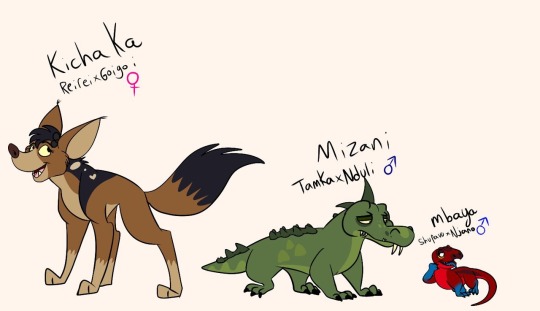
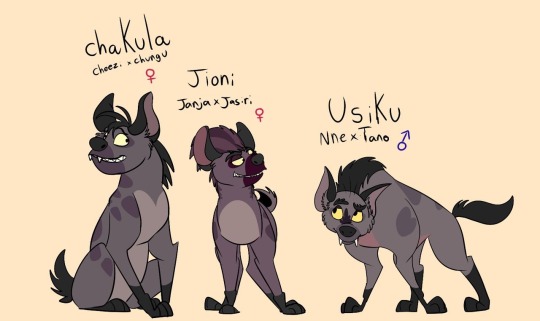
Some next gen Lion Guard ocs!!
Heres a bit about each
Kichaka- Female jackal who is the daughter of Reirei and Goigoi. She, unlike her parents, believe in helping others and being good. She notices how badly the lions treat the outlanders and wants true peace.
Mizani - Male croc. Son of Tamka and Nduli. Soon after reaching adulthood, he started challenging the “crocodile way.” He was banished from Kiburi’s float for questioning it. He was born with a short tail, so hes not the best at swimming.
Mbaya - Male Skink. Son of Shupavu and Njano. Sneaky, two faced, and always trying to be on the winning side for all his life. This is brought into question after meeting the other outlander children. He acts cocky but is very unsure of himself after he starts questioning what hes been taught.
Chakula - Female Hyena. Daughter of Cheezi and Chungu. She grew up alongside Jioni and Usiku. Unlike her fathers, she is strong and confident. She usually has her own ideas of things, but follows Jioni because she wants to be a supportive friend.
Jioni - Female Hyena. Daughter of Janja and Jasiri. Jioni, despite resembling Janja, is a hyena who wants nothing more than to leave the outlands. She would want peace with the lions, but after her peace being rejected over and over, she is now thinking of a way to get all of her friends and their familys out of the outlands.
Usiku - Male Hyena. Son of Nne and Tano. Jioni and Chakula’s other friend from childhood. He often joins them on adventures. He has a more sarcastic tone about him, but truly cares about his friends and family. Hes terrified of the lions in the Pridelands, and just wants to leave as soon as possible.
29 notes
·
View notes
Text

browsing goigoi's wiki and i found this!
Chungu, Cheezi, Tamka, Nduli & Goigoi friendship canon?? even if it is literally just so they can eat lmao
it is The Idiot Henchmen appreciation time via screenshots :)
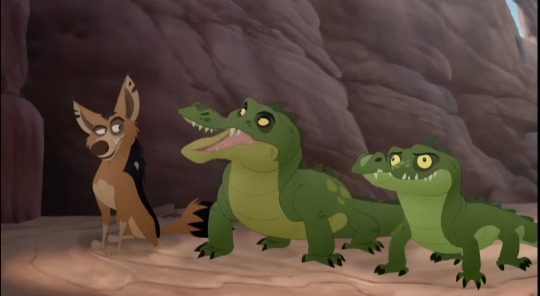
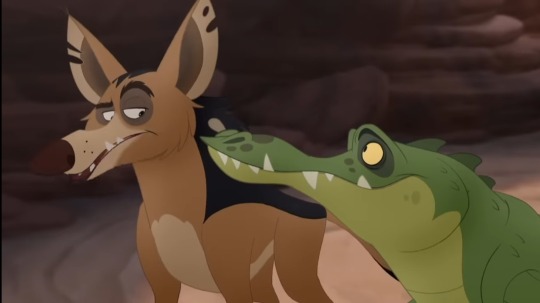

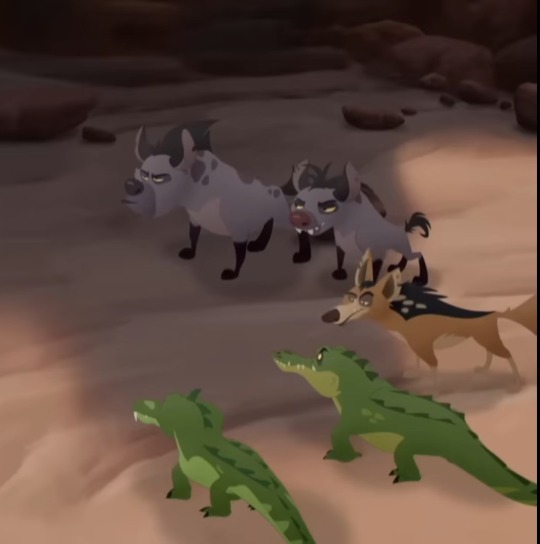
i love how goigoi and tamka just immediately click, their mutual hunger is unrivaled. goigoi even side eyes him when thurston interrupts them. immediately friends lmao

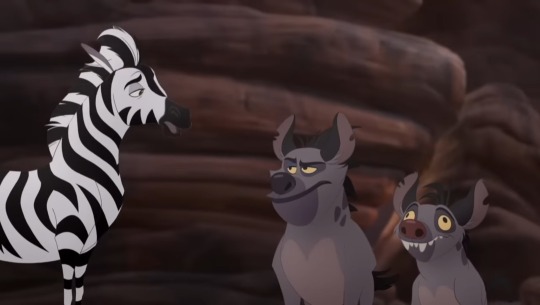
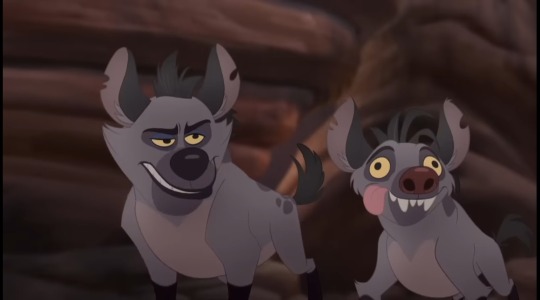
chungu and cheezi are so sassy in this scene LMAO they have no patience when it comes to food

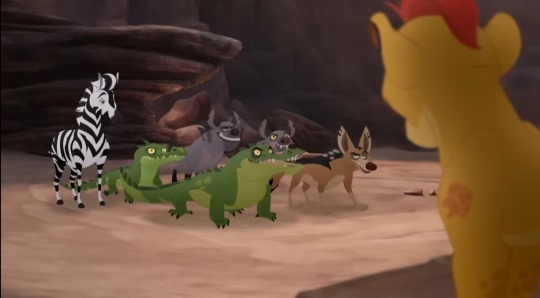
bonus images :) sassy nduli and cocky tamka! i am so happy we got this random ass episode with them hgfhfhg. thank you lion guard
i love them, their friendship and this episode a normal amount /s
#i would've included screenshots from when they first meet but i don't have access to full episodes :(#if anyone finds any i'd love to be sent some more screenshots of these silly guys#i literally love them all#they are besties. literally canon#the lion guard#tlg#tlg outlanders#goigoi#tamka#nduli#chungu#cheezi
79 notes
·
View notes
Text
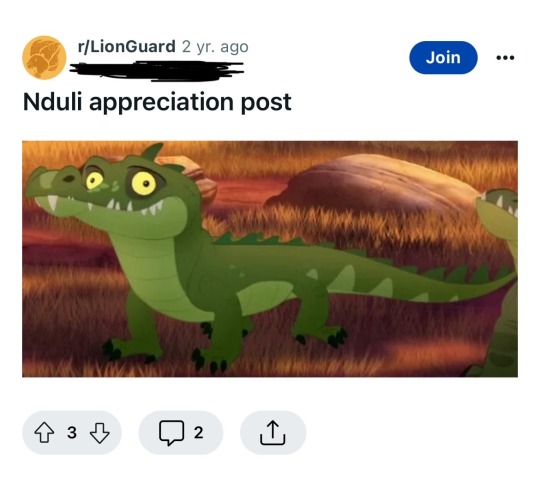

If I may add to this
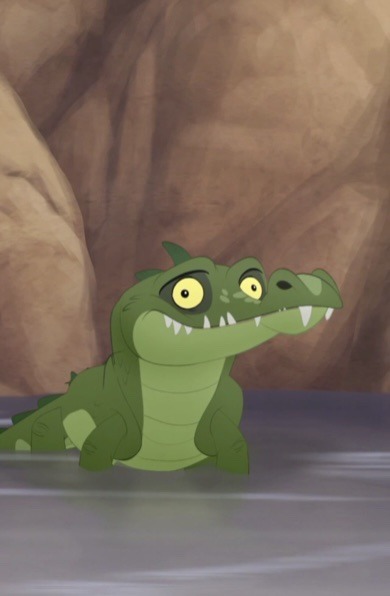
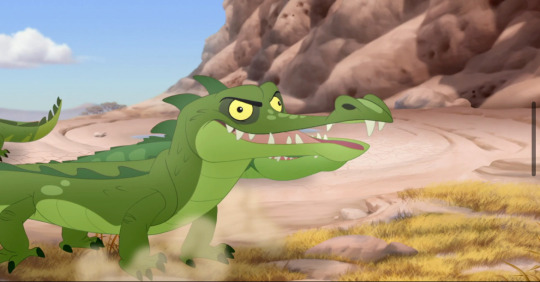

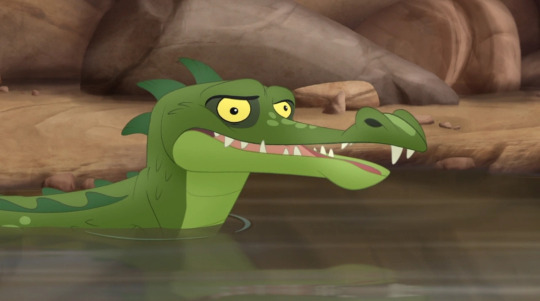
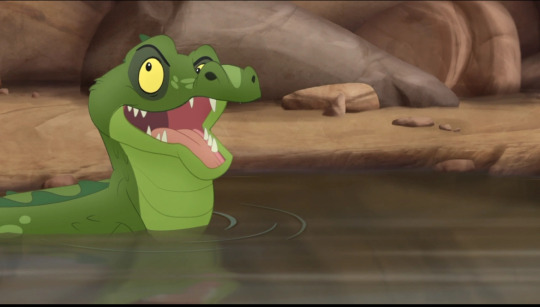
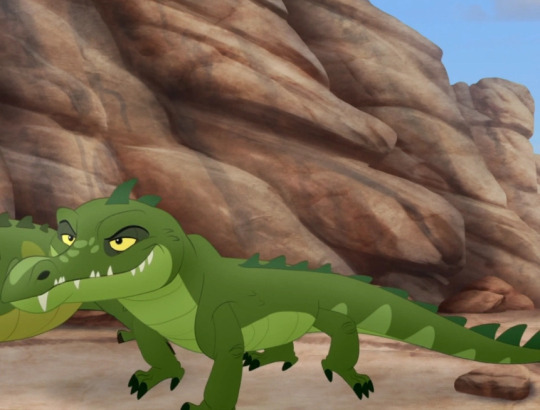
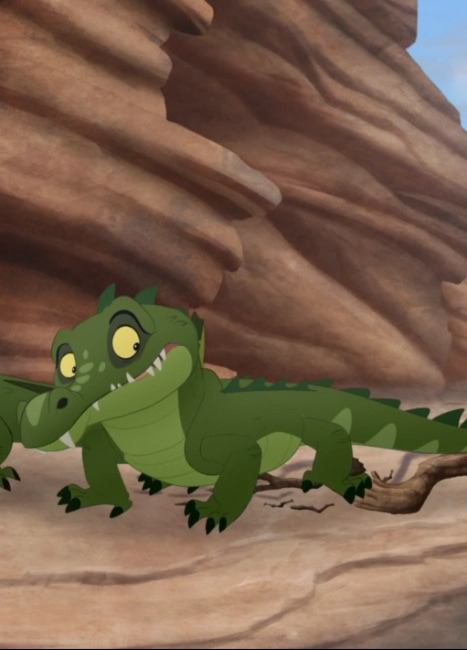
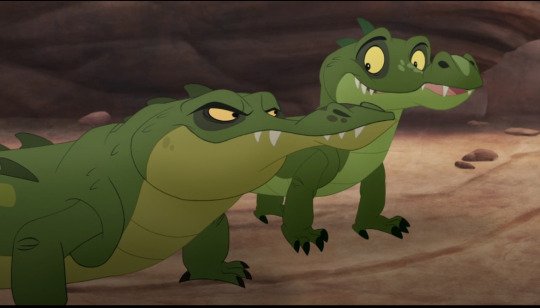
Nduli appreciation ftw
#also op is absolutely right he DOES have the cutest design for a croc#look at the baby#i wish he had more lines#everything he does is cute idc#he really does look like cheezi if he were a crocodile lmao#nduli#the lion guard
46 notes
·
View notes
Text
Round 2 Side B

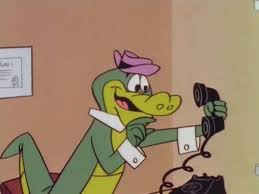
5 notes
·
View notes
Text
Gently headbutts the croc btw (from @spottedmischief)


Huh? What was the headbutt for? Is this a hyena thing? Hyenas are weird, and Cheezi's the weirdest of them all, but he's funny too. It's why they're friends! He thinks? Crocodiles and hyenas being friends... wasn't exactly common.
"Ey, Cheezi," Nduli nudges him with his snout, "what're you doin'?"
#; crocodile ruffian (nduli)#spottedmischief#I gotta remember how to write Nduli ajkdhsjshdka#; asks
4 notes
·
View notes
Text
I can’t deal with how he keeps running over or ramming himself into someone really close to him and Ed does it to him and he’s like "OW EVERY TIME”
#cheezi vc: JUST WAIT UNTIL I AM OLD ENOUGH AND LARGER THEN ITS MY TURN TO RUN YOU OVER#Nduli and Makini meet Ed and they are like yeah we see where Cheezi gets all this from
1 note
·
View note